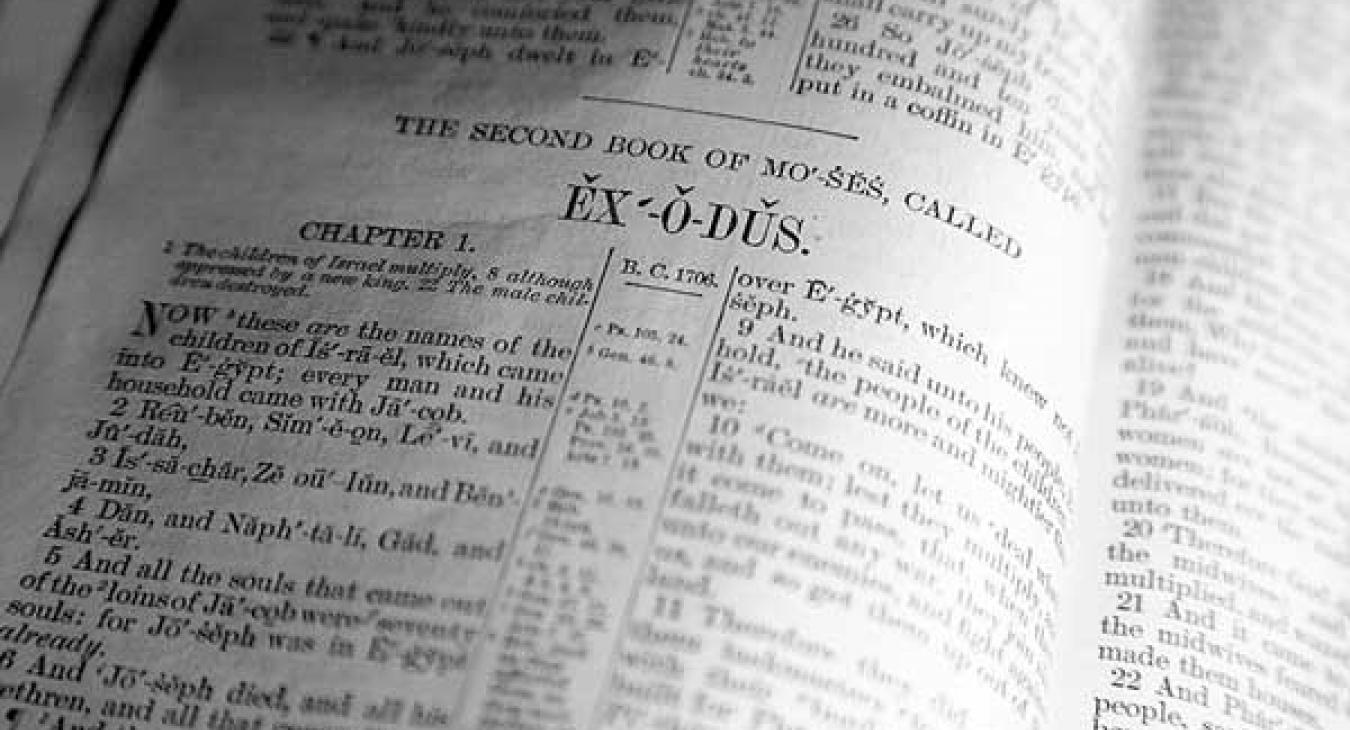From the Pastor’s Study
Radical Transformation Oct 13, 2021
In a few weeks I am going to be taking a course on the book of Exodus. To prepare for that course, I decided that reading through the book several times might be helpful. Since I have been on the road quite a bit, I decided to listen to an audio version of Exodus. As I listened the second and third times I was struck by how radically things changed for the Israelites in the course of a few short months.
The outline for Exodus is quite straightforward: the book begins with the Israelites in Egypt living under the tyrannical reign of an unnamed Pharaoh. God, who tells Moses that his name is Yahweh (read as “the LORD” in many English translations) sends Moses to lead the people out of Egypt, and, through the plagues God engages in battle with Moses over the Israelites. Showing his strength through a series of ten plagues which devastated the economy of Egypt, God wins the battle, Pharaoh and his armies are destroyed, and the Israelites are freed. The Israelites arrive at Mount Sinai and there God establishes himself as their new King. A good portion of the last half of Exodus involves the description and building of the tabernacle, a dwelling place for God the King among his people. The book ends with God entering into the tabernacle to seat himself on his earthly throne, the lid of the Ark of the Covenant in the Most Holy Place.
As I listened to the book over a couple of hours, I was struck by how, in the beginning, the story is all about Pharaoh while in the end of the book Pharaoh is completely forgotten. There, at the end, the story is all about God and his relationship with his people. The relationship does not always go well (the building and worshipping of the golden calf is also found in Exodus), but God remains faithful to his people, and they are privileged to have him dwell among them.
It is true that in the book of Numbers we see and hear the Israelites wanting to return to Egypt, but the only time the Israelites think favourably about Egypt occurs when they think about their stomachs and not about the hardships of slavery and the murder of their baby boys. While it was true that the Israelites faced food security issues while in the wilderness, their focus on their stomachs revealed a lack of trust in the faithfulness of God and his promise to provide for them. We should be slow to condemn them, however, for we also find ourselves thinking more about our physical wellbeing instead of carrying on with the Lord’s work all the while trusting that he will care for us. We aren’t much different from the Israelites, if we are truly honest with ourselves.
But back to the book of Exodus. Again, it was impressed upon me how completely the situation of the Israelites changed in the few months after they left Egypt. And, oddly, they did not choose those changes themselves, although those changes were for their good. It was God who did all the heavy lifting while we see the Israelites take very little initiative. The best way to describe them would be to call them rather confused and reluctant followers. Yet, by the end of the book of Exodus, a ragged band of ex-slaves has become a fledgling nation which is led by a powerful King.
What is striking, further, in the book of Exodus, is the contrast between the two kings, Pharaoh and God. The book opens with Pharaoh, as king and self-proclaimed god, exerting his power over the Israelites and when he perceives that he might lose his hold on them (the Israelites are becoming too numerous and might decide to join with Egypt’s enemies and fight against the Egyptians and leave), Pharaoh decides to destroy the power of Israel by destroying their male children. This will not leave Pharaoh without a workforce, for we can be sure that he will continue the workforce by breeding the Israelite women with Egyptian men. (This sounds crass, but that is the way slaves were treated.) When Pharaoh perceives he will lose control over the Israelites, he puts into action a plan to destroy them.
In the book of Exodus there is one point that God does lose his position of authority over the Israelites. The golden calf becomes the god of the Israelites by their own proclamation, and the true God is ignored. At that point God responds as we might expect Pharaoh to respond, namely by putting into place a plan to destroy the people of Israel. Through Moses’ mediation, however, God relents and backs away from his plan and, when Moses questions him on this, reveals himself to be a gracious and compassionate God who forgives sin. God’s response to people who refuse to recognize his authority is to call them back to himself. This is not what the Israelites would have expected, and it certainly is not what they deserved.
Thus, when we reach the end of the book of Exodus, we are thankful that it is the LORD God who has seated himself on the throne of Israel, for he is a King like no other. The story of Exodus is, in some ways, the human story. We find ourselves being freed from slavery to sin to freedom under the reign of Jesus Christ. And, like in Exodus, while we have little to do with that change and may even find ourselves to be reluctant followers, the change is for our good, for our King, our God is far better than our former king, the prince of darkness. And, like in Exodus, our end is radically different from our beginning

